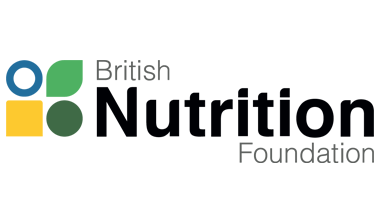Food & Your Brain
Mental Health / Healthy DietFood and mood are closely linked. The food we eat provides us with the energy and nutrients our brain needs to work well. This in turn affects our emotions and how we think. Our mental health can also influence our eating habits.
Eat a healthy diet
A healthy, balanced diet provides key nutrients our brain needs to work well. Various vitamins and minerals support psychological wellbeing and mental activities such as learning, remembering, reasoning, making decisions, and solving problems. Many nutrients also help to ensure our nervous system – which connects our brain with the rest of our body – stays healthy.
Eating a traditional Mediterranean-style diet has been linked to a positive mood. This type of eating pattern includes plenty of fruit, vegetables, wholegrains, pulses, oily fish, nuts, seeds, and olive oil. It contains some dairy products, poultry, and eggs, and only small amounts of red meat, butter, sugar, and processed foods. There’s not yet enough evidence to say a Mediterranean diet can prevent depression, but studies suggest some of the foods typically found in a Mediterranean diet such as vegetables, fruits, fish and wholegrains, may lower the risk.
However, the Mediterranean diet isn’t the only way to eat healthily – the balance of foods is similar to the UK healthy eating model, the Eatwell guide.
Have regular mealtimes
Eating regular meals helps to prevent hunger, which can affect our mood. For example, when we are hungry, we may feel irritable, tired, angry, miserable, or find it harder to concentrate or focus. Skipping meals or eating at odd times makes hunger more likely, so aim to eat breakfast, lunch, and dinner with snacks if needed.
Avoid strict diets
Diets that cut out a lot of foods or recommend long periods of time without eating may make it hard for our brain to get all the energy and nutrients it needs to work well. Extreme diets can also leave us feeling very hungry, which in turn can make us feel tired, miserable, angry, tense or irritable.
Strict diets may also make us think about food all the time and cause cravings. Giving into these cravings may then leave us feeling guilty, out of control or a failure, which may trigger further attempts to restrict what we eat. This cycle of starving and overeating can cause an unhealthy relationship with food, and over time can harm both our physical and mental health. To lose weight sensibly, it’s better to follow a healthy, balanced diet rather than trying extreme or fad diets.
Make plants a priority
Healthy eating guidelines recommend a mainly plant-based diet, so vegetables, fruit, wholegrains, beans, lentils, chickpeas, nuts, and seeds, should make up most of the foods we eat.
Plant-based diets provide plenty of fibre, which passes through the digestive system and ends up in the large intestine. Here, it provides food for beneficial or ‘good’ bacteria, which help to keep our gut healthy.
There is also evidence that all the beneficial bacteria and other tiny organisms that live in our gut (the gut microbiome) communicate with the brain and influences how it works. This is sometimes called the gut-brain axis or gut-brain connection.
Some early studies suggest a healthy gut microbiome may help to protect against mental health conditions such as depression and anxiety, but far more research is needed before any firm conclusions can be made.
Eat high-fibre carbohydrates
During digestion, carbohydrates in the food we eat are broken down into glucose. This is important as our brain uses glucose as its main source of energy. It’s best to choose carbohydrates that are high in fibre as these break down slowly, providing the brain with a steady supply of glucose. This also helps to keep us feeling fuller for longer, so we are less likely to get hungry, which in turn can affect our mood.
Fibre-rich choices include wholewheat pasta, brown rice, wholemeal bread, wholegrain cereals, oats, potatoes in their skins, beans, and vegetables. These foods should form the base of each meal.
Eat two portions of fish a week
Fish, especially oily fish such as salmon, mackerel, sardines, and trout, contains an omega-3 fat called DHA, which helps the brain to function properly. Seafood also provides vitamins and minerals that support cognitive and psychological function.
Some studies have shown higher intakes of omega-3 fats and fish, especially oily fish, are linked to a lower incidence of depression. However, more research is needed to confirm if eating more fish – or taking supplements of omega-3 fats – will help to prevent or treat depression.
Healthy eating guidelines recommend eating two portions of sustainably sourced fish a week, where a portion is around 140g when cooked. One of these should be an oil-rich fish. Fresh, frozen, and tinned all count.
Limit fatty, sugary and salty foods
Research shows less healthy diets may be linked to a higher risk of depression but more studies are needed to confirm whether unhealthy diets cause the condition. Many people in the UK have too much saturated fat, sugar and/or salt in their diet, so eating fewer foods that contain high amounts of these is sensible for better health.
Stay hydrated
The brain is made up of around 75 percent water so even mild dehydration may affect mental wellbeing, causing anxiety, tiredness, irritability, confusion, and poor memory.
To stay hydrated, a general guide is to drink 6-8 glasses of fluids a day. But the exact amount of fluid we need will depend on our body size, gender, age, and how much we sweat, which can be influenced by exercising, hot weather, menopausal flushes or having a fever. Breastfeeding, medications with a diuretic effect, and illnesses that cause diarrhoea, sickness or increased urination (such as uncontrolled diabetes), also mean the body loses fluid, which need replacing.
Checking our urine is a good way to check if we are hydrated. While some foods, medicines and supplements can affect the colour, urine that’s pale and odourless generally means we are hydrated, while dark urine with a strong odour indicates we need to drink more.
Feeling thirsty is a sign of dehydration, so it’s especially important to drink if you are thirsty. All fluids (except alcohol) count towards fluid needs but be mindful of what else they contain. Soft drinks can be high in sugar. Drinks that contain caffeine can make us anxious and affect sleep. Water is the best choice.
Avoid or limit alcohol
Depression, anxiety, and stress often go together with drinking more alcohol in an attempt to cope with emotions, block out feelings, or relax. However, alcohol affects our brain, so can have a negative effect on mood and increase the risk of depression. Excessive drinking also affects sleep quality and can cause hangovers that leave us feeling unwell, anxious, and less able to cope the next day. Plus, alcohol reduces the ability to absorb some vitamins and minerals the brain needs to function well.
If you do drink alcohol, it’s safest to drink no more than 14 units a week, spread over three or more days, with several drink-free days. You can use a unit calculator to work out how many units you consume in a typical week.
Cut back on caffeine
Caffeine is found in coffee, tea (including green tea), cola and many energy drinks. It’s a stimulant so can help with alertness, but it may also cause a faster heartbeat and increase anxiety. The effects of caffeine can last up to seven hours so drinking a coffee at 7pm might still affect some people at 2am, leading to poor sleep that results in tiredness the next day. This is why some people recommend avoiding coffee or tea in the afternoon and evening. It’s best to cut back on caffeine slowly, as suddenly stopping may cause headaches.
Be more active
Feeling depressed often causes low energy levels, tiredness and fatigue. But exercise can help lift our mood. This is because it releases feel-good chemicals in the brain called endorphins. Exercise also adds structure to our day and gives us a sense of purpose and achievement.
The impact of mood on eating habits
Our mood can strongly affect what and how we eat. Feeling depressed, anxious, tense, or unhappy may mean some people lose their appetite or have little interest in food and meals. Others may be more likely to turn to comfort foods. Some anti-depressant medications can also influence appetite or cause side effects such as nausea, which may lead to changes in eating habits and weight.
Low energy levels and a lack of motivation due to depression or stress can also make preparing or cooking meals less appealing. This may lead to relying more on takeaways, processed foods or snacks high in fat, sugar and salt.
Some people may also rely more heavily on soft drinks and sugary foods to fight tiredness and low energy, which are common symptoms of depression and anxiety. Others may drink more alcohol, hoping it will help them relax.
Identifying the connection between mood and food
Keeping a diary of what you eat and drink over a week or two, together with how you were feeling at the time, such as anxious, angry, sad, stressed, or tired, may help you spot a connection between your mood and food intake. For example, you may notice you drink alcohol when you are stressed or eat chocolate when you feel sad. A food and mood diary can also highlight missed meals or long gaps without eating. Having a clearer picture of how mood affects what you eat can help you develop meal plans to support regular eating and manage your emotions in other ways.
Managing emotional eating
Emotional eating, also called comfort eating, happens when we eat because of how we feel such as being worried, upset, stressed or miserable rather than because we are hungry. ‘Comfort’ foods are different for everyone, but they’re often linked to childhood memories or times when we felt safe and happy. Common comfort foods like biscuits, chocolate, and ice cream, are low in nutrients, but high in calories, fat and sugar, which can lead to weight gain if eaten often.








































































































































